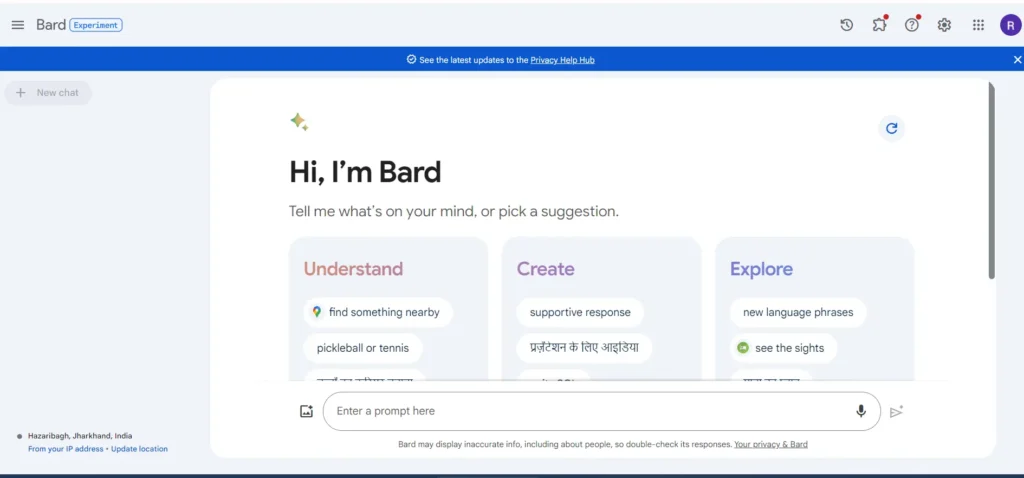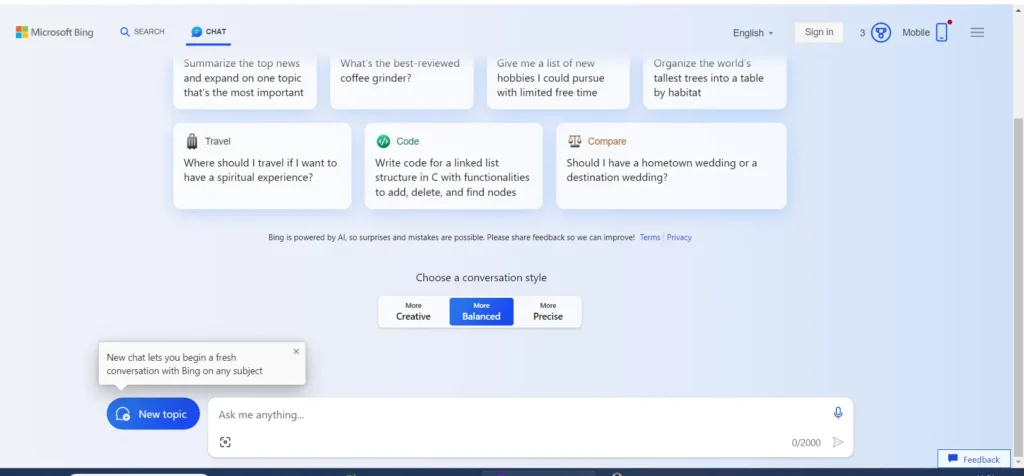Table of Contents
Embark on a transformative journey with the top 3 AI solutions designed exclusively for you! From streamlining tasks to enhancing efficiency, these Best AI tools cater to your unique needs. Discover the perfect match to elevate your productivity today.”

Introduction: The Evolution of Artificial Intelligence (AI)
In today’s landscape, Artificial Intelligence (AI) stands as a transformative force, reshaping industries and revolutionizing user experiences across various domains. Amidst a myriad of Best AI applications, determining the most suitable app tailored to specific needs can be a daunting task. In this comprehensive guide, we embark on a journey to explore and analyze the top three AI applications that stand out in the dynamic digital landscape.
Understanding AI Applications
The realm of AI applications spans a spectrum of functionalities, from streamlining tasks to redefining entire industries. These applications leverage intricate technologies like machine learning, neural networks, and sophisticated algorithms to simulate human-like intelligence. The fusion of these advancements fosters efficiency and drives innovation across diverse sectors.
Delving into the Top 3 AI Applications
1. ChatGPT: Redefining Conversational Best AI
ChatGPT emerges as a pinnacle in AI-driven conversational interfaces. Fuelled by state-of-the-art natural language processing (NLP) models, ChatGPT excels in comprehending and generating human-like text, thereby facilitating seamless interactions. Its versatility extends to revolutionizing customer support, generating diverse content, and curating personalized user experiences.

2. Bard: Empowering Creative Expression Best AI
Within the realm of creative writing, Bard stands as an exceptional AI application. This innovative platform harnesses the power of AI to assist and inspire writers, elevating storytelling capabilities and refining content creation processes. Its remarkable ability to generate diverse narratives and nurture creativity sets a new benchmark in content generation tools.

3. Bing AI: Elevating Search Capabilities Best AI
Bing AI exemplifies significant advancements in search technology. By integrating cutting-edge AI-driven algorithms, it optimizes search results, providing users with highly accurate and personalized information retrieval. Its adaptive learning mechanisms continuously refine search functionalities, ensuring enriched and tailored user experiences.

Key Features and Benefits
Each of these AI applications presents distinctive features and benefits:
-
- ChatGPT: Excels in conversational Best AI, enabling seamless interactions and crafting personalized experiences.
-
- Bard: Empowers writers with creative support, fostering innovation in content creation and storytelling realms.
-
- Bing AI: Elevates search capabilities, delivering precise and tailored search results.
Choosing the Best AI App
Selecting the ideal AI app depends on specific requirements and objectives. Considerations include:
-
- Use Case: Identifying the intended purpose, whether it’s enhancing customer engagement, content creation, or information retrieval.
-
- Functionality: Assessing features aligned with needs, such as conversational abilities, creativity support, or search precision.
-
- User Experience: Evaluating reviews and experiences to gauge practicality and effectiveness.
Conclusion
In the dynamic landscape of Best AI applications, choosing the best AI app entails a deep understanding of unique functionalities and alignment with specific objectives. ChatGPT, Bard, and Bing AI emerge as frontrunners, each excelling in distinct domains of Best AI. Thoroughly evaluating their features and benefits empowers individuals and businesses to effectively harness the power of BestAI.
Frequently Asked Questions (FAQs)
Q1: How does ChatGPT enhance user interactions?
ChatGPT leverages sophisticated NLP models to understand user queries and offer contextually relevant responses. Its conversational abilities make it an ideal choice for customer support, virtual assistants, and generating engaging content.
Q2: Can Bard help novice writers improve their skills?
Absolutely! Bard assists writers of all levels by suggesting ideas, providing prompts, and enhancing storytelling abilities. Its AI-powered tools offer valuable support, nurturing creativity among beginners and seasoned writers alike.
Q3: What sets Bing AI apart from other search engines?
Bing AI stands out by leveraging advanced algorithms to personalize search results based on user behavior and preferences. Its continual learning mechanisms ensure refined and accurate search outcomes, making it a standout choice for precise information retrieval.
Q4: Can these AI apps adapt to evolving user requirements?
Yes, these applications continually evolve through updates and enhancements, adapting to changing user needs and technological advancements.
Q5: Are there privacy concerns associated with these AI applications?
AI apps prioritize user privacy, implementing robust measures to safeguard data and ensure secure interactions.
Q6: Are these AI applications accessible for businesses of all sizes?
Indeed, these applications cater to diverse business scales, offering scalable solutions tailored to varying organizational needs.
Q7: How frequently are these AI applications updated?
Updates vary but are consistently rolled out to improve performance, introduce new features, and address user feedback.
Q8: Can these AI apps integrate with existing software and platforms?
Yes, these applications often offer integration capabilities, enabling seamless compatibility with a wide array of software and platforms.
Q9: What technical infrastructure is needed to integrate these AI applications?
The technical requirements vary based on the application and its intended use. Generally, these apps have scalable integration options, adaptable to diverse technological infrastructures.
Q10: Can these AI applications be customized for specific industry needs?
Certainly! These applications often offer customizable features and functionalities, allowing tailored solutions to align with specific industry requirements and challenges.
Q11: Do these AI applications require extensive training or expertise to operate?
While a basic understanding of the platform is beneficial, these applications are designed with user-friendliness in mind, requiring minimal training for initial usage.
Q12: How do these AI apps ensure data security while leveraging user information?
AI apps prioritize data security through encryption, stringent access controls, and adherence to industry-standard security protocols to safeguard user data and ensure confidentiality.
Q13: Are there ongoing costs associated with using these AI applications?
The pricing structures may vary, but many of these applications offer flexible pricing models, including subscription-based or pay-per-use plans, ensuring cost-effectiveness based on usage.
Q14: Can these AI applications operate offline or in regions with limited internet connectivity?
While some functionalities might require internet access, efforts are made to provide offline capabilities, ensuring usability in areas with intermittent connectivity.
Q15: How do these AI apps ensure unbiased outputs and avoid perpetuating societal biases?
To mitigate biases, these applications undergo rigorous testing, and algorithms are continuously refined to promote fairness, inclusivity, and ethical usage.



